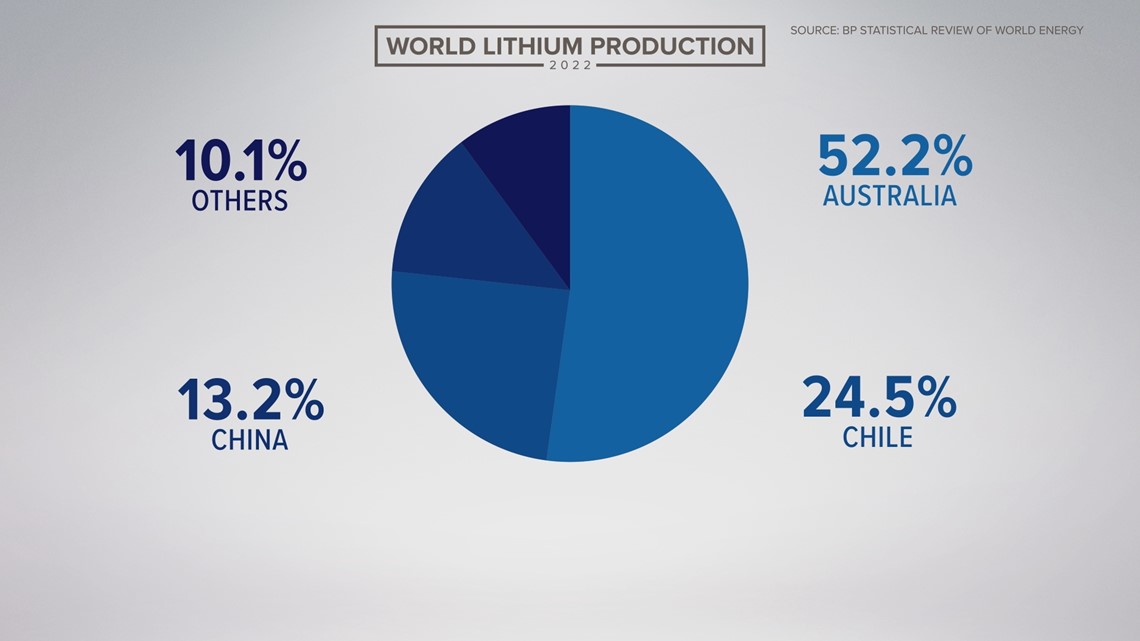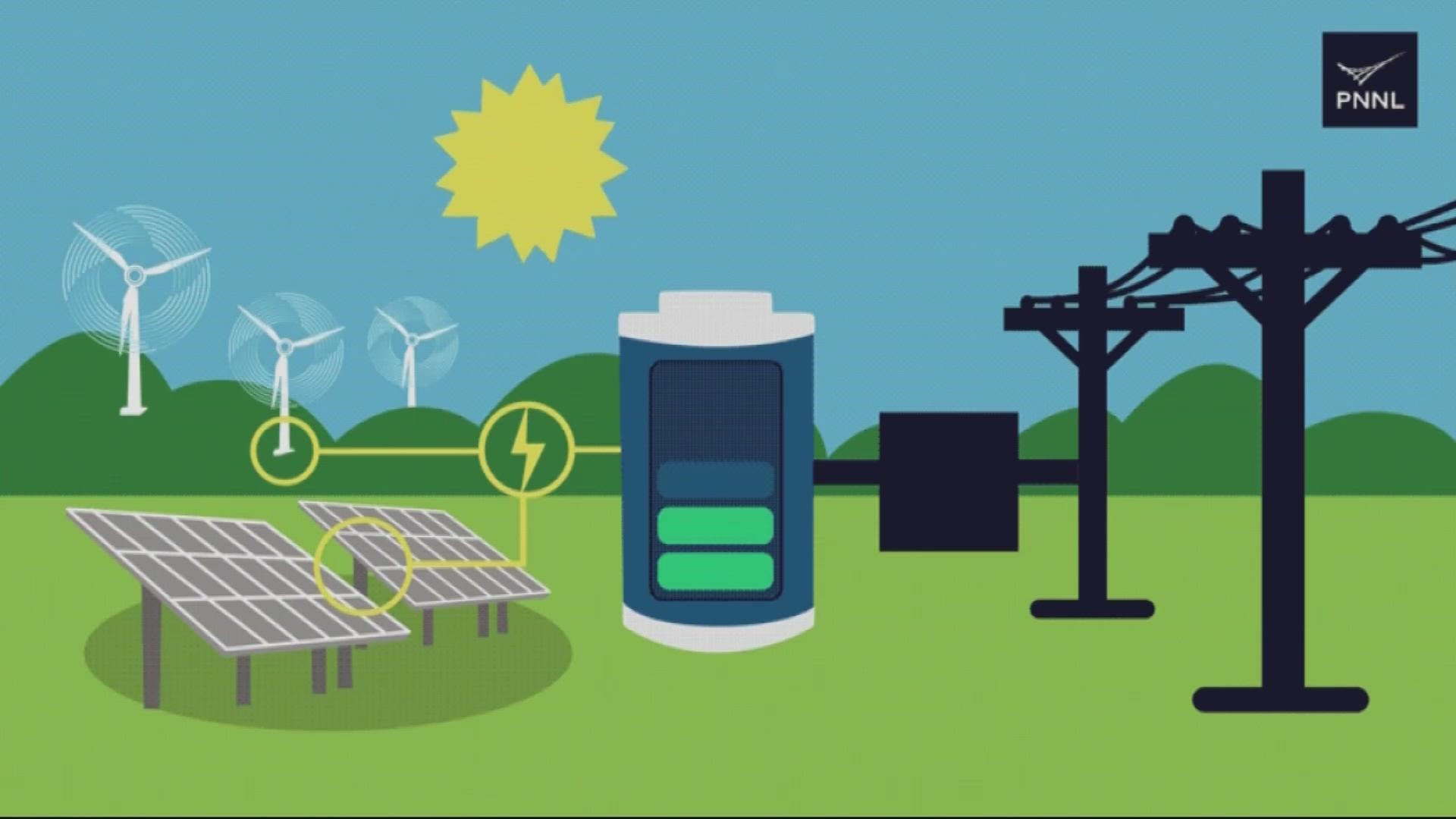PORTLAND, Oregon — Right now, electricity is largely a use-it-or-lose-it proposition.
"We generate it based on what our usage is, and so all those systems have to be tuned to whatever the grid needs at that moment," said Vince Sprenkle, advisor with the Pacific Northwest National Laboratory (PNNL) in Richland, Washington.
But as the world races away from fossil fuels in favor of renewable energy production, the technology to get that power into the grid has to evolve just as quickly.
As abundant as the wind and the sun are, the wind doesn't always blow, nor the sun always shine, when we need it. So we have to be able to store it. And that poses a second challenge.
"Right now, to store energy, we're using lithium," Sprenkle said. "That’s 97% of what's going out on the grid today."
Lithium is the primary component for most of today’s batteries. It's also a liability — socially, environmentally, and economically. Australia, China and Chile control 90% of global production, the U.S. just 1%.


PNNL lead researcher Guosheng Li and his team of scientists are working on more available and environmentally responsible materials for their new storage prototype.
"First, this battery is made of sodium and aluminum. [Aluminum] is the most abundant material in the world," Li said. "And second, this battery can store lots of energy compared to conventional batteries, which means this battery can discharge for a long time."
Li's new sodium aluminum battery has a lower operating temperature than similar prototypes in global development. In lab tests, the battery proved it could discharge over more than a day, meaning scientists are closing the gap on reliably getting every watt of power generated through renewable sources into our electric grid, on demand.
That's the primary focus for the scientists at the lab in Richland.
"We answer some fundamental questions, we show that the technology can be scaled up, and at that point, that’s when industry comes in," Sprenkle said.
Chris McGinness is a meteorologist and reporter for KGW. Got a story idea or a great photo you want to share? Email him at cmcginness@kgw.com or reach out on Facebook , Twitter and Instagram.

